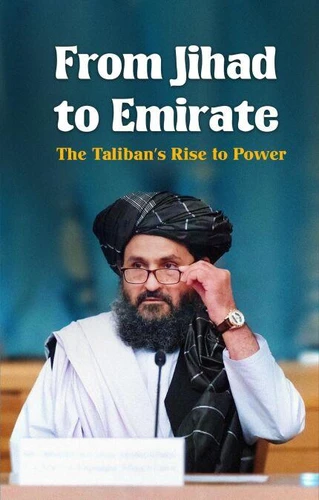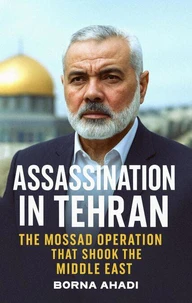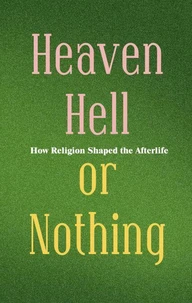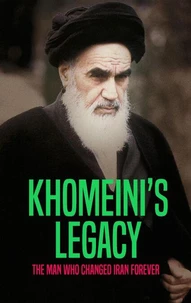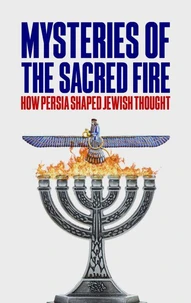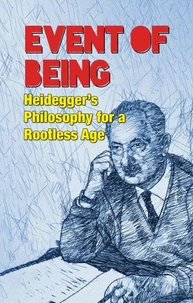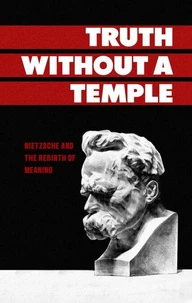From Jihad to Emirate: The Taliban’s Rise to Power
Par :Formats :
Disponible dans votre compte client Decitre ou Furet du Nord dès validation de votre commande. Le format ePub est :
- Compatible avec une lecture sur My Vivlio (smartphone, tablette, ordinateur)
- Compatible avec une lecture sur liseuses Vivlio
- Pour les liseuses autres que Vivlio, vous devez utiliser le logiciel Adobe Digital Edition. Non compatible avec la lecture sur les liseuses Kindle, Remarkable et Sony
 , qui est-ce ?
, qui est-ce ?Notre partenaire de plateforme de lecture numérique où vous retrouverez l'ensemble de vos ebooks gratuitement
Pour en savoir plus sur nos ebooks, consultez notre aide en ligne ici
- FormatePub
- ISBN8231082698
- EAN9798231082698
- Date de parution14/08/2025
- Protection num.pas de protection
- Infos supplémentairesepub
- ÉditeurWalzone Press
Résumé
From Jihad to Emirate: The Taliban's Rise to Power is a gripping and unflinching chronicle of one of the most dramatic and controversial insurgencies of the modern era. This book traces the Taliban's journey from the shadows of Soviet-occupied Afghanistan to their transformation into a formidable political force that once again rules Kabul. With surgical precision and historical depth, this narrative dismantles the mythologies surrounding the Taliban and reveals the inner workings, ideology, and foreign entanglements that propelled their rise.
The book opens in the crucible of post-Soviet chaos, where tribal allegiances and jihadist zeal fueled the Taliban's ascent in the 1990s. It explores the radical madrassa networks of Pakistan, the Pashtun code of honor, and the collapse of the Mujahideen government that created the vacuum for the Taliban's emergence. Readers are taken into the dimly lit caves of Kandahar and the corridors of Quetta, where ideology meets strategy, and theology fuses with militarism.
The narrative then dives into the U. S.-led invasion in 2001 and the swift collapse of the Taliban regime, only to reveal the unexpected rebirth of the movement from the ashes. From suicide bombers to tribal negotiations, from opium-fueled war finance to U. S. missteps, each chapter unravels the strategic patience and brutal resilience of an organization that refused to die. This is not just a story of warfare-it is a story of identity, betrayal, and geopolitical gamesmanship.
The book unveils the role of Pakistan's ISI, the shifting alliances with al-Qaeda, and the murky support systems that nurtured the Taliban's long game. It reveals how tribal politics, failed nation-building efforts, and corruption undermined the Afghan Republic, paving the road for the Taliban's dramatic return in 2021. From Jihad to Emirate is both a historical investigation and a chilling reflection on what happens when ideology outlasts occupation.
It questions the meaning of victory, the limits of intervention, and the real cost of abandoning a war half-fought. This is not a tribute. It is not a condemnation. It is an uncompromising examination of how empires fall and insurgents win.
The book opens in the crucible of post-Soviet chaos, where tribal allegiances and jihadist zeal fueled the Taliban's ascent in the 1990s. It explores the radical madrassa networks of Pakistan, the Pashtun code of honor, and the collapse of the Mujahideen government that created the vacuum for the Taliban's emergence. Readers are taken into the dimly lit caves of Kandahar and the corridors of Quetta, where ideology meets strategy, and theology fuses with militarism.
The narrative then dives into the U. S.-led invasion in 2001 and the swift collapse of the Taliban regime, only to reveal the unexpected rebirth of the movement from the ashes. From suicide bombers to tribal negotiations, from opium-fueled war finance to U. S. missteps, each chapter unravels the strategic patience and brutal resilience of an organization that refused to die. This is not just a story of warfare-it is a story of identity, betrayal, and geopolitical gamesmanship.
The book unveils the role of Pakistan's ISI, the shifting alliances with al-Qaeda, and the murky support systems that nurtured the Taliban's long game. It reveals how tribal politics, failed nation-building efforts, and corruption undermined the Afghan Republic, paving the road for the Taliban's dramatic return in 2021. From Jihad to Emirate is both a historical investigation and a chilling reflection on what happens when ideology outlasts occupation.
It questions the meaning of victory, the limits of intervention, and the real cost of abandoning a war half-fought. This is not a tribute. It is not a condemnation. It is an uncompromising examination of how empires fall and insurgents win.
From Jihad to Emirate: The Taliban's Rise to Power is a gripping and unflinching chronicle of one of the most dramatic and controversial insurgencies of the modern era. This book traces the Taliban's journey from the shadows of Soviet-occupied Afghanistan to their transformation into a formidable political force that once again rules Kabul. With surgical precision and historical depth, this narrative dismantles the mythologies surrounding the Taliban and reveals the inner workings, ideology, and foreign entanglements that propelled their rise.
The book opens in the crucible of post-Soviet chaos, where tribal allegiances and jihadist zeal fueled the Taliban's ascent in the 1990s. It explores the radical madrassa networks of Pakistan, the Pashtun code of honor, and the collapse of the Mujahideen government that created the vacuum for the Taliban's emergence. Readers are taken into the dimly lit caves of Kandahar and the corridors of Quetta, where ideology meets strategy, and theology fuses with militarism.
The narrative then dives into the U. S.-led invasion in 2001 and the swift collapse of the Taliban regime, only to reveal the unexpected rebirth of the movement from the ashes. From suicide bombers to tribal negotiations, from opium-fueled war finance to U. S. missteps, each chapter unravels the strategic patience and brutal resilience of an organization that refused to die. This is not just a story of warfare-it is a story of identity, betrayal, and geopolitical gamesmanship.
The book unveils the role of Pakistan's ISI, the shifting alliances with al-Qaeda, and the murky support systems that nurtured the Taliban's long game. It reveals how tribal politics, failed nation-building efforts, and corruption undermined the Afghan Republic, paving the road for the Taliban's dramatic return in 2021. From Jihad to Emirate is both a historical investigation and a chilling reflection on what happens when ideology outlasts occupation.
It questions the meaning of victory, the limits of intervention, and the real cost of abandoning a war half-fought. This is not a tribute. It is not a condemnation. It is an uncompromising examination of how empires fall and insurgents win.
The book opens in the crucible of post-Soviet chaos, where tribal allegiances and jihadist zeal fueled the Taliban's ascent in the 1990s. It explores the radical madrassa networks of Pakistan, the Pashtun code of honor, and the collapse of the Mujahideen government that created the vacuum for the Taliban's emergence. Readers are taken into the dimly lit caves of Kandahar and the corridors of Quetta, where ideology meets strategy, and theology fuses with militarism.
The narrative then dives into the U. S.-led invasion in 2001 and the swift collapse of the Taliban regime, only to reveal the unexpected rebirth of the movement from the ashes. From suicide bombers to tribal negotiations, from opium-fueled war finance to U. S. missteps, each chapter unravels the strategic patience and brutal resilience of an organization that refused to die. This is not just a story of warfare-it is a story of identity, betrayal, and geopolitical gamesmanship.
The book unveils the role of Pakistan's ISI, the shifting alliances with al-Qaeda, and the murky support systems that nurtured the Taliban's long game. It reveals how tribal politics, failed nation-building efforts, and corruption undermined the Afghan Republic, paving the road for the Taliban's dramatic return in 2021. From Jihad to Emirate is both a historical investigation and a chilling reflection on what happens when ideology outlasts occupation.
It questions the meaning of victory, the limits of intervention, and the real cost of abandoning a war half-fought. This is not a tribute. It is not a condemnation. It is an uncompromising examination of how empires fall and insurgents win.

